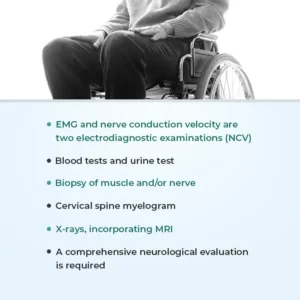Amyotrophic lateral sclerosis (ALS) or Motor Neuron Disease (MND) is a disease that causes the loss of motor neurons in the brain and spinal cord that regulate voluntary movements including walking, talking and breathing.
Our motor neurons play an important role in controlling the motions of our muscles and some organs within the body. These neurons connect the brain to the spinal cord and the spinal cord to the muscles. The impulses that regulate muscle action are carried by these motor neurons. Motor neurons in both the brain and the spinal cord begin to degrade and die and muscles progressively degenerate and begin to decline in the absence of regular stimulation. The brain eventually loses its capacity to start a movement or coordinate the muscles.
The onset and progression of ALS differ from person to person. For some, the initial sign is weakening in the hands, arms, or legs, such as trouble gripping a pencil or tripping. Some might primarily experience difficulty speaking or swallowing. The chronology of symptoms and the pace at which ALS advances might vary greatly; nonetheless, all individuals with ALS have growing muscular weakening and ultimately become unable to walk, talk, swallow, or breathe.
Diagnosis of ALS
MND is a disease that is tough to diagnose. No single test can definitively diagnose ALS. A diagnosis can only be made after a clinical examination and an array of medical tests, which typically rule out other diseases that look like ALS.
- EMG and nerve conduction velocity are two electrodiagnostic examinations (NCV)

- Blood tests and urine test
- Biopsy of muscle and/or nerve
- Cervical spine myelogram
- X-rays, incorporating MRI
- A comprehensive neurological evaluation is required.
These tests are performed at the doctor’s discretion, generally depending on the findings of other screening procedures as well as the physical examination.
Read Latest News
A Deeper Look at Stem Cells for ALS Treatment
Stem cells may divide indefinitely in vitro and give rise to a wide range of specialized cells. They have the potential to grow into blood, neurons, bone, muscle, skin, and other cell types. They have been recognized as a crucial resource in the investigation of the origins of ALS and the development of novel therapies.
![]() Stem cells could ultimately play a key role in disease treatment. The most logical use would be to distribute growth factors or neuroprotective chemicals to motor neurons in the spinal cord using stem cells or cells produced from them. These stem cell transplants are still in the early phases of clinical studies, but they tend to be safe. Additionally, healthy astrocyte transplantation has the potential to be advantageous in maintaining motor neurons in the brain and spine. While it is intriguing to replace ageing motor neurons with new ones produced from stem cells, employing stem cells as a delivery method to offer trophic factors to motor neurons is a much more practical and realistic strategy.
Stem cells could ultimately play a key role in disease treatment. The most logical use would be to distribute growth factors or neuroprotective chemicals to motor neurons in the spinal cord using stem cells or cells produced from them. These stem cell transplants are still in the early phases of clinical studies, but they tend to be safe. Additionally, healthy astrocyte transplantation has the potential to be advantageous in maintaining motor neurons in the brain and spine. While it is intriguing to replace ageing motor neurons with new ones produced from stem cells, employing stem cells as a delivery method to offer trophic factors to motor neurons is a much more practical and realistic strategy.
For Query Ask The Expert
If you are looking for stem cells for ALS, then Connect with Advancells at info@advancells.com, and you can also give us a call at +91-9654321400 for Your Inquiries.
Latest Blog:
5 Reasons Mesenchymal Stem Cell Therapy Could Be The Game Changer For Parkinson’s
Does Regenerative Therapy for Erectile Dysfunction Work
Recent Comments